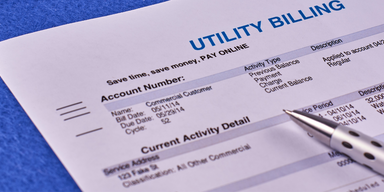
The supplemental COVID-19 emergency legislation passed by the D.C. Council on Tuesday included several major consumer protections, including comprehensive protection from the harmful impacts of consumer debt collection during the health emergency. The Council also passed mortgage relief provisions to help homeowners who can demonstrate evidence of a hardship resulting from the public health emergency. For those who qualify, this mortgage relief can provide much-needed breathing room and at least temporarily stave off foreclosure. But the relief has several substantial limitations and will not be able to reach everyone, underscoring the continued need for the District to implement a moratorium that will protect all homeowners from foreclosure during this difficult time.
Temporary mortgage relief, with limitations
During the public health emergency and for 60 days thereafter, servicers of mortgage loans under the jurisdiction of the D.C. Department of Insurance, Securities, and Banking (DISB) are required to develop mortgage “deferment” (also known as forbearance) programs to provide at least a 90-day deferment of mortgage payments – together with a break from fees and resulting negative credit reporting for the same time period – to homeowners who can demonstrate a financial hardship caused by the health emergency. The deferred payments remain due and must be paid back after the end of the forbearance period within a “reasonable time” by agreement between the borrower and servicer. If the borrower and servicer cannot agree on a reasonable time for repayment, the deferred payments are to be due 5 years after the end of the deferment period or at the end of the loan term, whichever is earlier. Servicers must develop application processes that borrowers can access online and by phone. Homeowners who are denied deferment relief can file a complaint with DISB for further investigation.
Legal Aid commends the Council for passing these mortgage relief provisions to help District homeowners. Still, there are substantial limitations to the relief. The 90-day required deferment period is only a fraction of the amount of time provided for forbearance under the federal CARES Act for homeowners with federally-backed mortgages, who can obtain payment relief for up to a year by request (including a request for extension). District homeowners who were already in foreclosure at the start of the health emergency are categorically ineligible for relief, even if the health emergency has caused further financial hardship. And the mortgage relief provisions also do not help homeowners who are at risk of foreclosure based on inability to pay condo fees.
Underscoring the need for a foreclosure moratorium
While the legislation is helpful, inconsistencies between the approaches that Congress and the Council have taken, as well as the failure by both bodies to protect homeowners from foreclosure based on something other than a mortgage, mean that the District has an incomplete patchwork of protections – providing substantially different levels of help to different homeowners based on factors that are in many ways arbitrary. The federal CARES Act, for example, already prohibits foreclosures from being initiated or conducted during the health emergency, but this moratorium only applies to those homeowners with federally-backed mortgages. Homeowners with non-federally backed mortgages are left to rely on the District’s deferment program, but the District’s more stringent requirements compared to the CARES Act may still leave some homeowners needlessly at risk. And neither of these policies do anything to stave off condo fee foreclosures. District homeowners need the Council to step in and address these inconsistencies and gaps by instituting a broad foreclosure moratorium that doesn’t depend on who owns your mortgage or whether you have a mortgage at all – as many other jurisdictions, including Maryland, have now done.
It’s also important to note that while some broader local measures currently in effect may be helpful to homeowners facing foreclosure, they are similarly underprotective, and relying on them to lessen the threat posed by pandemic-driven foreclosures is problematic.
The D.C. Superior court is, for now, continuing all foreclosure hearings (as well as hearings in essentially all other non-emergency cases). But the court is still accepting new filings and issuing orders, with no exception made for foreclosure cases. And many foreclosures, like those based on nonpayment of condominium fees, are processed entirely outside of the court system and therefore unaffected by the court’s measures.
Further, while the Mayor’s stay-at-home order should have the effect of stopping in-person auctions from going forward, foreclosure sales should not be permitted to happen the moment the order is lifted. Relying on the Mayor’s order to prevent auction sales leaves homeowners vulnerable during the entire period that foreclosure is being threatened or initiated. Homeowners are left vulnerable to trauma, vulnerable to believing they need to go out to court and compromise their safety to prevent a foreclosure or otherwise seek help (not knowing about the court’s operating status), and vulnerable to falling victim to scams that target homeowners in extreme distress. It also means that homeowners with limited to no access to technology (for example, the many low-income homeowners who rely on libraries to access computers and have limited phone minutes or data) could be stuck during the time period leading up to the loss of their home. These homeowners have no meaningful opportunity to try to work things out, whether that be in the form of seeking a forbearance, payment plan, or other type of arrangement - or even conducting a voluntary sale to avoid the loss of equity.
A foreclosure moratorium would prevent unnecessary trauma, loss of generational wealth and homeownership by District residents of color, and preserve affordable housing in a city already fighting to stem the tide of displacement as one of the most intensely gentrifying cities in the nation. We urge the Council to take more action on this pressing community need, and we look forward to continuing our advocacy.




